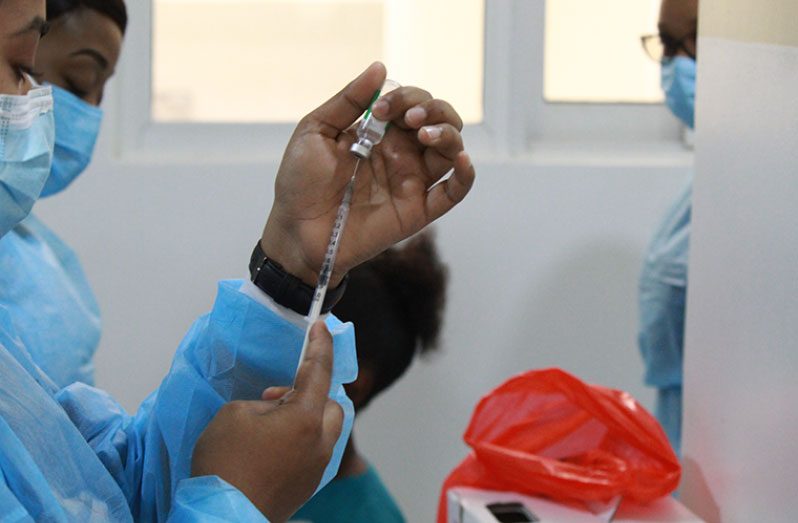THOUGH the rollout of COVID-19 vaccines has begun in Guyana and is expected to intensify over the coming months, Health Minister, Dr. Frank Anthony, has highlighted that persons desirous of travelling will still need to take a PCR test, even if vaccinated.
“Even if you have received your two shots (of the vaccine), you would still need to do your Polymerase Chain Reaction (PCR) test if you’re travelling to another country,” Dr. Anthony said during his daily COVID-19 update with the Department of Public Information (DPI) on Thursday.
In Guyana, vaccinated persons are receiving immunisation cards which provide the details of when they received the COVID-19 vaccine and which vaccine they received. But, this card has not yet substituted the PCR test.
The rollout of COVID-19 vaccines began last Thursday with the administering of the first of two doses to frontline health workers at the Georgetown Public Hospital Corporation (GPHC) and at the National Infectious Diseases Hospital, at Liliendaal, Greater Georgetown.
Some 981 frontline healthcare workers have received their first dose of the Oxford-Astrazeneca vaccine for COVID-19.
Though someone who has been vaccinated and is 100 per cent protected from getting the severe effects of COVID-19 by this Astrazeneca vaccine, the Health Minister explained that it is possible for a small number of persons to become infected with a mild form of the novel coronavirus and transmit it to others. He said this is a possibility because none of the vaccines offer 100 per cent protection.
This specific issue is one which Dr. Anthony indicated has been raised with both the Pan-American Health Organisation (PAHO) and the World Health Organisation (WHO). The advice from both of those organisations, he said, has been that countries continue to require the PCR test for travel.
However, he also indicated that investigations are now underway to determine whether vaccination alone would suffice before permitting someone to travel overseas.
This Oxford-AstraZeneca vaccine, which is manufactured in India by the Serum Institute, has an efficacy of 62 per cent, while it offers 100 per cent protection against the severe form of COVID-19. However, studies carried out in a smaller sub-group reported that the vaccine is 90 per cent efficacious, with a lower dose than the required two doses.
Now, according to a newer study from Oxford University that is under review, a single standard dose of the vaccine provided 76 per cent protection (or efficacy) overall against symptomatic COVID-19 in the first 90 days (about three months).
Then, vaccine efficacy reached 82.4 per cent after a second dose in those persons with a dosing interval of about 12 weeks.
Initially, health workers were expected to receive the second dose of the vaccine — known as the ‘booster’ dose — about three weeks after the initial vaccination, but the Health Minister noted that a decision was made to increase that to between eight to 12 weeks. This, according to studies, he referenced, has shown to increase the efficacy of the vaccines.
Last Wednesday, the WHO’s Strategic Advisory Group of Experts on Immunisation (SAGE) suggested this eight to 12-week interval between the two doses of the COVID-19 vaccine.



.jpg)











